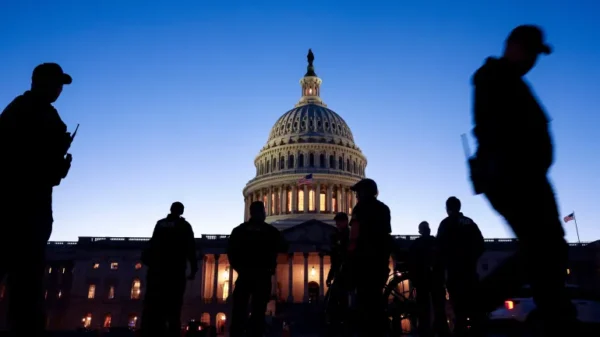Effective January 1, 2025, California has increased its state minimum wage to $16.50 per hour for all employers, regardless of size.
Local Variations in Minimum Wage Rates
In addition to the state-mandated increase, several cities and counties in California have established higher local minimum wage rates to address the specific economic conditions of their regions. For instance, as of July 1, 2024, Los Angeles set its minimum wage at $17.28 per hour, with an increase to $17.81 per hour effective July 1, 2025.
San Francisco’s minimum wage is adjusted annually based on the Consumer Price Index, with the current rate at $18.67 per hour as of January 1, 2025.
Impact on Fast Food and Healthcare Workers
Specific industries have also seen targeted wage increases. Starting April 1, 2024, fast food workers in California are entitled to a minimum wage of $20 per hour.
This adjustment aims to provide better compensation for employees in the fast food sector. Similarly, healthcare facility employers have implemented higher minimum wages effective October 16, 2024, reflecting the critical nature of their work.
Employer Compliance and Responsibilities
Employers are advised to review both state and local minimum wage laws to ensure compliance. This includes updating payroll systems, informing employees of wage changes, and maintaining accurate records. Non-compliance can result in legal and financial penalties.
Economic Implications of the Wage Increase
The increase in minimum wage is anticipated to have various economic effects. Proponents argue that higher wages will improve the standard of living for low-income workers and stimulate consumer spending. Critics, however, express concerns about potential increased costs for businesses, which could lead to higher prices for consumers or reduced employment opportunities.
Historical Context and Legislative Background
California has a history of progressive wage policies, often leading national trends. The state’s minimum wage has been on a scheduled increase over the past decade, aiming to provide fair compensation in response to the high cost of living. Legislation such as Senate Bill 3 has been instrumental in these incremental increases.
Comparison with Federal Minimum Wage
The federal minimum wage remains at $7.25 per hour, unchanged since 2009. California’s minimum wage significantly exceeds the federal rate, reflecting the state’s higher cost of living and policy decisions aimed at supporting workers.
Future Projections and Potential Adjustments
While Proposition 32, which proposed raising the state’s minimum wage to $18 per hour, was rejected by voters in November 2024, discussions about future increases continue. Economic conditions, inflation rates, and political dynamics will influence potential adjustments in the coming years.
Impact on Small Businesses
Small businesses may face challenges adapting to the increased labor costs. Some may need to adjust pricing, reduce staff hours, or find other cost-saving measures to accommodate the wage hike. Supporters of the increase suggest that higher wages can lead to increased employee productivity and reduced turnover, potentially offsetting the higher costs.
Worker Perspectives
Many workers welcome the wage increase, anticipating improved financial stability and the ability to better meet living expenses. For fast food workers now earning $20 per hour, the increase represents a significant boost in income, contributing to enhanced quality of life.
Regional Disparities and Cost of Living Considerations
Despite the uniform state minimum wage, California’s diverse economic landscape means that the real value of wages can vary significantly by region. Urban areas like San Francisco and Los Angeles have higher living costs, prompting local governments to set higher minimum wages to match the local cost of living.
Legal Compliance and Enforcement
The California Department of Industrial Relations is responsible for enforcing minimum wage laws. Employers found in violation may face penalties, including fines and back pay obligations. Employees are encouraged to report any suspected violations to ensure fair labor practices are maintained.
Training and Apprenticeship Exceptions
Certain exceptions to the minimum wage laws exist, such as for employees undergoing training or apprenticeship programs. These exceptions are designed to encourage skill development while recognizing the investment employers make in training new workers.
Tipped Employees and Wage Calculations
Unlike some states, California does not allow employers to count tips toward the minimum wage. Tipped employees must receive the full minimum wage in addition to any tips earned, ensuring fair compensation for service workers.
Ongoing Debates and Policy Discussions
The topic of minimum wage continues to be a subject of debate among policymakers, economists, and business leaders. Discussions focus on finding a balance between providing fair wages for workers and ensuring the economic viability of businesses, particularly small enterprises.
Resources for Employers and Employees
Both employers and employees can access resources from the California Department of Industrial Relations for guidance on minimum wage laws, compliance requirements, and rights. Staying informed is crucial for navigating the evolving wage landscape in California.
In summary, the increase in California’s minimum wage to $16.50 per hour, effective January 1, 2025, reflects the state’s ongoing efforts to support workers amid varying economic conditions. Employers and employees alike must stay informed about these changes to ensure compliance and to understand their rights and responsibilities within the state’s labor framework.



































